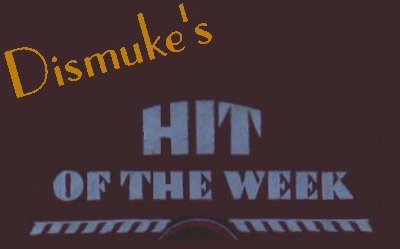

February 2001
February 22
Oriental
Moonlight 
The Night Hawks
1927
(Romeo 346-B)
"The Night Hawks" were
almost certainly not a real group but rather a record company assigned
pseudonym - perhaps inspired by the success of the Coon-Sanders Kansas
City Nighthawks Orchestra on radio and on Victor Records. The
use of pseudonyms was a very common practice at the time, especially on
inexpensive "dime store" labels. This recording is from an old Romeo
record. Romeos were primarily distributed through the
S.H.
Kress & Co , a large dime store chain. Other dime store chains
included McCrory's, S.S. Kresge and, of course, F.W. Woolworth.
Such stores were fixtures in the downtowns of early 20th century American
cities. In addition to offering a large assortment of inexpensive
mass produced merchandise, most stores had a record department where prospective
buyers could sample the 78 rpm records. With the demise of Woolworth
a few years back, there are few dime stores left. The basic
idea still lives on in today's discount stores - but there is no way that
a visit to one of Wal-Mart's bland, utilitarian boxes can quite live up
to the Art Deco splendor of a 1930s vintage Kress store or a snack at the
Woolworth lunch counter.
February 15
Milenberg
Joys 
McKinney's Cotton Pickers
1928
(Bluebird 10954 - A )
Despite having a name that played
on black stereotypes, McKinney's Cotton Pickers is considered by many to
have been one of the best jazz bands of the late 1920s - and justifiably
so, in my opinion. The band got its start in 1921 when William
McKinney formed a trio in Springfield, Ohio. For the next few years,
the band was known as The Synco Jazz Band and McKinney's Syncos.
A major turning point came in 1927 when Don Redman hired on as music
director. That same year, the band started being booked by Jean Goldkette.
A bandleader himself, Goldkette owned Detroit's Graystone Ballroom and
booked bands throughout the Midwest. It was Goldkette who came up
with the "McKinney's Cotton Pickers" name. The band was highly successful
at the Graystone and on records. In 1931, Don Redman left in order
to form his own band. He was replaced by Benny Carter, but he too
left to start a band less than a year later. The band continued,
though less successfully, under McKinney well into the late 1930s.
The particular 78 rpm I took
this from is a 1940 reissue. The original 1928 release was on Victor
21611.
February 8
Rio Grande 
Floyd Tillman And His Favorite
Playboys 1941
(Decca 5960-A )
Why
Do You Treat Me This Way 
Floyd Tillman And His Favorite
Playboys
Floyd Tillman, vocal
1941
(Decca 6090-B)
Every so often, I will feature
more than one recording on my weekly updates in this section.
Early country recordings are
a mixed bag in my opinion. Many are way too rustic for my taste.
On the other hand, there are others that I really enjoy despite their
frequently less than inspiring lyrics. It is a musical genre that
I have an interest in exploring further but find somewhat difficult
to do because of the necessity of sifting through the recordings that really
do not appeal to me.
Tillman is one artist whose recordings
I generally do enjoy. The son of sharecropper, he was born in Ryan,
Oklahoma in 1914. He played guitar and composed many of the songs
he recorded. He was the first major country singer to accompany himself
with an electric guitar. He was inducted in the Nashville Songwriters'
Hall of Fame in 1976 and the Country Music Hall of Fame in 1984.
I think "Rio Grande" is a fun
record. The sort of steel guitar effects heard on this recording
are one of the things I like most about early country music.
"Why Do You Treat Me This Way" is one of Tillman's own compositions.
While he had a very definite regional "twang," I think he had an interesting
vocal style. So far as I know, Floyd Tillman is still alive as I
write this and lives in Marble Falls, Texas.
February 1
Grand
Terrace Rhythm 
Fletcher Henderson and His Orchestra
1936
(Victor 25339-A )
Henderson various bands in the
1920s and 1930s helped launch the careers of many of the era's top black
jazz musicians. Henderson is regarded as one of the major influences
behind what became known as Swing music. Unfortunately, he was not
as successful financially. In 1935, Henderson disbanded and joined
the Benny Goodman Orchestra as an arranger - one of the first instances
in those days of segregation where a black musician was hired to join a
"white" band. Henderson's arrangements played a large part in the
band's triumphant success at the Palomar Ballroom in Los Angeles that helped
establish Goodman as "The King of Swing." In 1936, he left
Goodman in order to form the band featured on this recording.
This group survived until 1939. Henderson remained active in
the music business until 1950, when he was stricken by a severe stroke.
He died in 1952.
As you will hear on this recording,
the Fletcher Henderson and Benny Goodman bands of the mid 1930s sounded
very similar.

|

